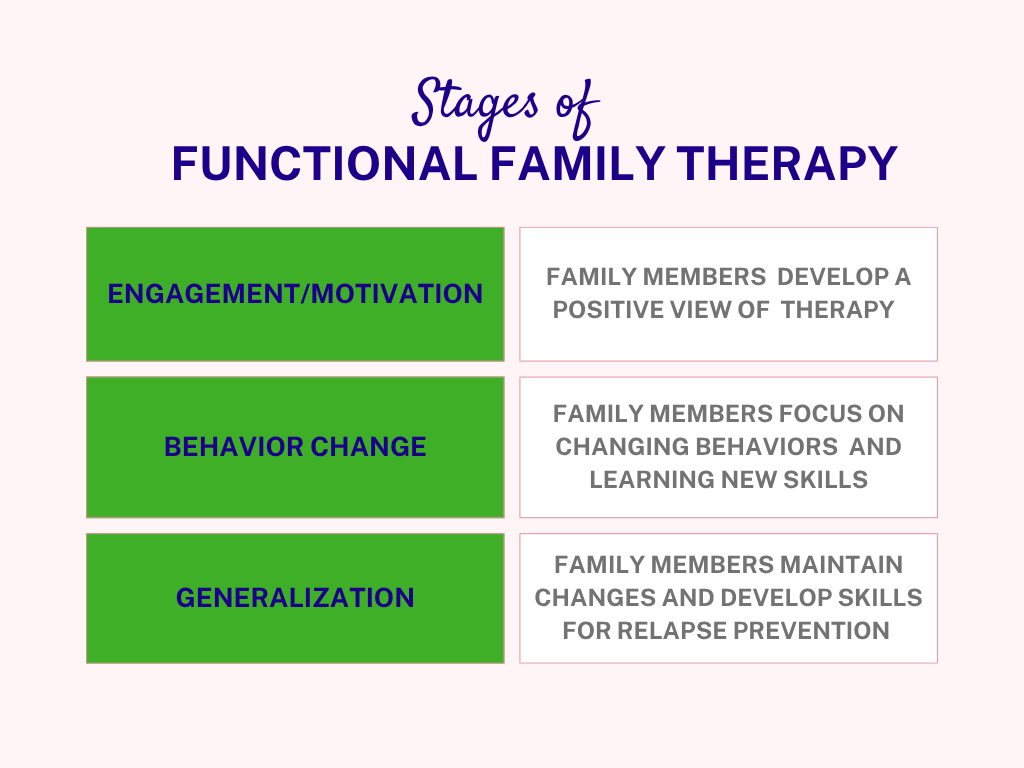Can Family Therapy Help Teens Forgive and Let Go?
My first memory of forgiveness is as clear as a sunny afternoon sky. I was a teen, young and hurting, distressed with depression, receiving treatment at an adolescent residential facility. I sat in a heavily air-conditioned cafeteria, my therapist beside me, my mother, who hadn’t always treated me well, sat across the table. At my therapist’s request, I reached out and held my mother’s hand, holding on for a full minute. She beamed at me, her eyes tearing up. She said she loved me. For me, that was enough.
Commonly, experiences involving forgiveness are popular in therapy, particularly family therapy, the type of therapy used to help children improve their relationships with their parents. Family therapy not only strengthens families but helps teenagers resolve emotional distress that causes them to act out.
One approach, Functional Family Therapy (FFT), is heavily relied on by therapists, and research suggests it’s growing in popularity. In FFT, teens confront the causes of dysfunctional behavior, a process that leads them through a period of acceptance and forgiveness.
Functional Family Therapy—what it is, how it works
If you have a child who is misbehaving or has developed substance abuse issues, FFT may help them break free of disruptive behaviors. Sessions are designed to be short-term, once a week for several months. Sessions follow a series of three stages. Each stage is aimed at strengthening family relationships.
Family members first partake in the Engagement and Motivation phases, developing an interest in the program and a desire to make change, Next, participants focus on the Behavior Change stage, applying learned principals towards lasting change. Finally, the Generalization stage involves family members maintaining changes. Here, they explore resources intended for relapse prevention.

Recent developments in society highlight the need for FFT. The rise of reported mental health disorders among youth is a top reason. Substance abuse among teens, reported more frequently, is another issue. Finally, according to a 2024 World Happiness report, today’s teens are now less happy than older adults, which emphasizes the need for structured family treatment.
Defiance and rebellion in teens
Two reasons why the teenage years are challenging for parents: defiance and rebellion, both stemming from a teen’s desire to find their identity. Rebellion and defiance are normal parts of development that occur after children experience situations that challenge their values. Teens become disruptive and anger occurs. Teens may struggle to communicate negative feelings, leading to resentment, the painful feeling that comes from being wronged.
As a teen, I rebelled against my parents because of the toxic, cold environment in which I lived. Therapy helped me understand why boundaries existed and helped to strengthen my relationship with my parents. Over time, I forgave my parents for their hostile approach. But this only happened after months of therapy and education.
What I didn’t realize was that mental health disorders also play a role in childhood dysfunctional behavior. In these cases, a child experiences symptoms that directly cause rebellion.
- In Oppositional Defiance Disorder, a child is irritable and defiant for six months.
- In Conduct Disorder, a child breaks rules, acts aggressively, and loses respect for authority.
- In ADHD, a child’s hyperactivity and difficulty concentrating lead to behavioral problems.
- In depression, depressed mood and gloomy thoughts may cause a child to be rebellious.
- In anxiety disorders, feelings of dread or being uneasy may lead to rebellion among teens.
When there is rebellion and defiance, there is anger and resentment. Teens who feel wronged, mistreated, belittled, or unappreciated may become disruptive in class or fight back against parental rules. Family therapy gives them a chance to correct their behavior. Practicing forgiveness is a crucial early step.
Practicing forgiveness in family therapy
Teenage rebellion is often a sign that a child is holding onto feelings of resentment. If the situation can be alleviated, a therapist may help the teen practice forgiveness. According to a study cited in an article published in Psychology Today, people who practice forgiveness notice reduced anxiety and depression, which translates to improved behavior—teens who feel better get along better with their parents.
A therapist may help a teen practice forgiveness during family therapy by helping them understand their parent’s varying perspectives. Through empathy and acceptance, positive aspects of situations the teen doesn't agree with come to light. For example, having a parent express safety concerns might help a teen appreciate a strict curfew. Encouraging parents to share their own childhood experiences may help a teen learn to appreciate why certain rules exist. To apply forgiveness, a therapist may request that the family complete role-playing exercises that involve the teen pointing out why they’re acting out, then learning through the parent’s statements why things are the way they are. Forgivenesss may come in the form of an apology the teen accepts, or through a mutual understanding following a statement of affection.
Despite the therapist’s guided approach, the teen—or parents—may experience challenges in the process. Expressing feelings may cause a family member to feel like they’re being blamed, increasing the family’s discomfort. Other challenges include difficulty sharing, either from the parents or the teen, or confusion regarding what is stressing the teen, which may reduce the power of forgiveness. A therapist’s goal is to guide the family through improving communication, which can help everyone involved learn to forgive and let go.
A healthy family
A family may find they’re on the verge of disaster as they’re rebellious, defiant teen becomes disruptive and toxic. Family therapy is a time for teens to get help, and can occur in the comfort of the home, or in the office. Teens who participate in family therapy are known to see behavioral improvements. The reduction in anxiety and depression is another reason family therapy is so important.
When forgiveness takes place, a teen’s chances of a successful recovery increase. Families must embrace the process, learn to make changes, and make those changes stick. In the end, it’s loving families that know how to forgive that have the best-behaving teenagers—and most positive thoughts and feelings.
Kevin' Brown is a freelance mental health writer and the editor of The Therapy World Blog.


0 Comments Add a Comment?